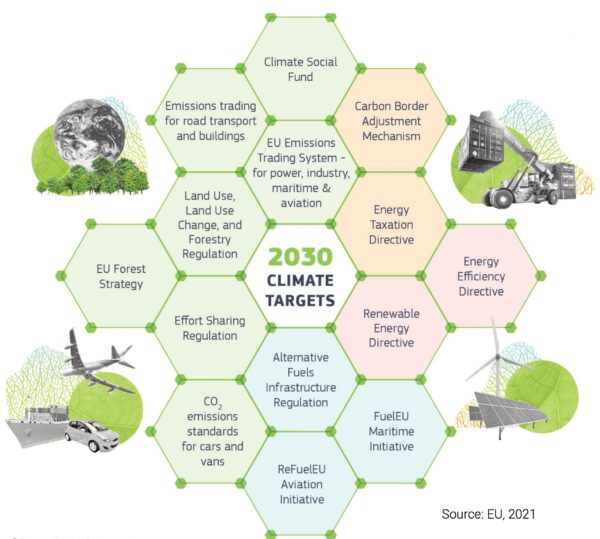For: An international agricultural company
[October 2022 – February 2023]
The project was centered around the request to provide a comprehensive overview and analysis of relevant policies and regulations regarding biofuels, bioenergy, sustainable agriculture, circular economy, and other related fields. The aim was to understand the content and implications of each document for the agricultural sector, and to provide an analysis that connects the dots between historical developments and potential future trends in policy and legislation.

The core of the project activities involved the development of factsheets. These factsheets helped identify overarching themes and analyses. At the same time, these themes guided the selection of legal documents for detailed assessment. About 20 documents (of European policies and legislation) were proposed for detailed factsheet development based on an initial assessment of each document’s impact on the materials, markets, and themes most relevant to our client and their customers in relation to biofuels and biomaterials.
The other documents, not shortlisted for detailed factsheets, were summarised in a more overarching manner. In all cases, the potential implications of each document for the client’s business were made clear.
Based on the insides studio Gear Up brought together on the policy, legislative and regulatory framework around renewable fuels, biofuels, bioenergy and the circular economy, the client is able to assess its strategic actions, position and market opportunities.



